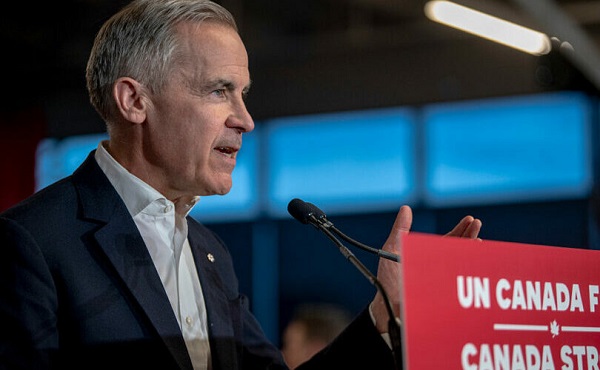Alberta
Alberta Justice Minister to meet with municipal leaders about forming Alberta Provincial Police

Submitted by Minister Tyler Shandro
Alberta Provincial Police and the RCMP
To keep our communities safe and to protect our way of life, Alberta needs police services that are well managed, properly resourced, and accountable to local communities.
The national model that we have right now does not meet these expectations. The RCMP is stretched far and wide, dealing with everything from national threats to traffic stops in small-town Alberta.
We believe policing can be improved to meet the needs of all Albertans. That’s why our government has developed a proposal to create a provincial police service.
I want to be clear: this proposal is not a criticism of the RCMP. Our frontline officers do amazing work. Our concerns are with a national policing model that is bureaucratic and unaccountable.
Over the years, Alberta, other Canadian provinces, and even the federal government have repeatedly identified problems with this national policing model. This national model does a poor job of recruiting police officers. It fails to properly staff rural detachments. It trains police officers outside of Alberta. It uses a lab system that fails to process evidence fast enough. And it excludes municipalities from collective bargaining for the RCMP while offloading increased costs onto municipalities.
The provincial model that Alberta has proposed will increase the number of frontline police officers and civilian specialists in every detachment. It will expand the use of mental health nurses. It will reduce the transfer of officers in and out of communities. And, importantly, it will increase the ability for municipal governments to have a say in local policing, and be more cost-effective.
Alberta is not the only province interested in establishing a provincial police service. New Brunswick, Nova Scotia and Saskatchewan are all looking at the same issue. This spring, an all-party committee in British Columbia unanimously recommended replacing the RCMP with a provincial police service. And last year, a federal report recommended that the federal government explore ending the use of the RCMP for local policing and help provinces interested in setting up their own police service.
If a new provincial police service is created, it would not replace municipal or First Nation police services. In fact, Alberta’s government will actively support municipalities and First Nations that are interested in creating their own police service.
Under the proposed provincial model, no municipality will face increased costs. Municipalities would pay the same or less for a provincial police service compared to what they pay for the RCMP. This is a far better bargain than the federal model, which will require municipalities to pay a larger share of policing costs in the coming years.
We believe that policing can be improved in our province. Over the summer, I will be meeting with municipalities, stakeholders and Albertans to continue this important and long overdue conversation.
Tyler Shandro
Minister of Justice and Solicitor General
Alberta
Alberta takes big step towards shorter wait times and higher quality health care

From the Fraser Institute
On Monday, the Smith government announced that beginning next year it will change the way it funds surgeries in Alberta. This is a big step towards unlocking the ability of Alberta’s health-care system to provide more, better and faster services for the same or possibly fewer dollars.
To understand the significance of this change, you must understand the consequences of the current (and outdated) approach.
Currently, the Alberta government pays a lump sum of money to hospitals each year. Consequently, hospitals perceive patients as a drain on their budgets. From the hospital’s perspective, there’s little financial incentive to serve more patients, operate more efficiently and provide superior quality services.
Consider what would happen if your local grocery store received a giant bag of money each year to feed people. The number of items would quickly decline to whatever was most convenient for the store to provide. (Have a favourite cereal? Too bad.) Store hours would become less convenient for customers, alongside a general decline in overall service. This type of grocery store, like an Alberta hospital, is actually financially better off (that is, it saves money) if you go elsewhere.
The Smith government plans to flip this entire system on its head, to the benefit of patients and taxpayers. Instead of handing out bags of money each year to providers, the new system—known as “activity-based funding”—will pay health-care providers for each patient they treat, based on the patient’s particular condition and important factors that may add complexity or cost to their care.
This turns patients from a drain on budgets into a source of additional revenue. The result, as has been demonstrated in other universal health-care systems worldwide, is more services delivered using existing health-care infrastructure, lower wait times, improved quality of care, improved access to medical technologies, and less waste.
In other words, Albertans will receive far better value from their health-care system, which is currently among the most expensive in the world. And relief can’t come soon enough—for example, last year in Alberta the median wait time for orthopedic surgeries including hip and knee replacements was 66.8 weeks.
The naysayers argue this approach will undermine the province’s universal system and hurt patients. But by allowing a spectrum of providers to compete for the delivery of quality care, Alberta will follow the lead of other more successful universal health-care systems in countries such as Australia, Germany, the Netherlands and Switzerland and create greater accountability for hospitals and other health-care providers. Taxpayers will get a much better picture of what they’re paying for and how much they pay.
Again, Alberta is not exploring an untested policy. Almost every other developed country with universal health care uses some form of “activity-based funding” for hospital and surgical care. And remember, we already spend more on health care than our counterparts in nearly all of these countries yet endure longer wait times and poorer access to services generally, in part because of how we pay for surgical care.
While the devil is always in the details, and while it’s still possible for the Alberta government to get this wrong, Monday’s announcement is a big step in the right direction. A funding model that puts patients first will get Albertans more of the high-quality health care they already pay for in a timelier fashion. And provide to other provinces an example of bold health-care reform.
Alberta
Alberta’s embrace of activity-based funding is great news for patients

 From the Montreal Economic Institute
From the Montreal Economic Institute
Alberta’s move to fund acute care services through activity-based funding follows best practices internationally, points out an MEI researcher following an announcement made by Premier Danielle Smith earlier today.
“For too long, the way hospitals were funded in Alberta incentivized treating fewer patients, contributing to our long wait times,” explains Krystle Wittevrongel, director of research at the MEI. “International experience has shown that, with the proper funding models in place, health systems become more efficient to the benefit of patients.”
Currently, Alberta’s hospitals are financed under a system called “global budgeting.” This involves allocating a pre-set amount of funding to pay for a specific number of services based on previous years’ budgets.
Under the government’s newly proposed funding system, hospitals receive a fixed payment for each treatment delivered.
An Economic Note published by the MEI last year showed that Quebec’s gradual adoption of activity-based funding led to higher productivity and lower costs in the province’s health system.
Notably, the province observed that the per-procedure cost of MRIs fell by four per cent as the number of procedures performed increased by 22 per cent.
In the radiology and oncology sector, it observed productivity increases of 26 per cent while procedure costs decreased by seven per cent.
“Being able to perform more surgeries, at lower costs, and within shorter timelines is exactly what Alberta’s patients need, and Premier Smith understands that,” continued Mrs. Wittevrongel. “Today’s announcement is a good first step, and we look forward to seeing a successful roll-out once appropriate funding levels per procedure are set.”
The governments expects to roll-out this new funding model for select procedures starting in 2026.
* * *
The MEI is an independent public policy think tank with offices in Montreal, Ottawa, and Calgary. Through its publications, media appearances, and advisory services to policymakers, the MEI stimulates public policy debate and reforms based on sound economics and entrepreneurship.
-

 2025 Federal Election2 days ago
2025 Federal Election2 days agoRCMP memo warns of Chinese interference on Canadian university campuses to affect election
-

 2025 Federal Election1 day ago
2025 Federal Election1 day agoResearchers Link China’s Intelligence and Elite Influence Arms to B.C. Government, Liberal Party, and Trudeau-Appointed Senator
-

 COVID-1917 hours ago
COVID-1917 hours agoCDC Vaccine Safety Director May Have Destroyed Records, Says Sen. Ron Johnson
-

 COVID-191 day ago
COVID-191 day agoFauci, top COVID officials have criminal referral requests filed against them in 7 states
-

 2025 Federal Election1 day ago
2025 Federal Election1 day agoTwo Canadian police unions endorse Pierre Poilievre for PM
-

 2025 Federal Election3 hours ago
2025 Federal Election3 hours agoTaxpayers urge federal party leaders to drop home sale reporting to CRA
-

 2025 Federal Election1 day ago
2025 Federal Election1 day agoMark Carney vows to provide sterilizing puberty blockers to children ‘without exception’
-

 2025 Federal Election2 days ago
2025 Federal Election2 days agoThe status quo in Canadian politics isn’t sustainable for national unity










